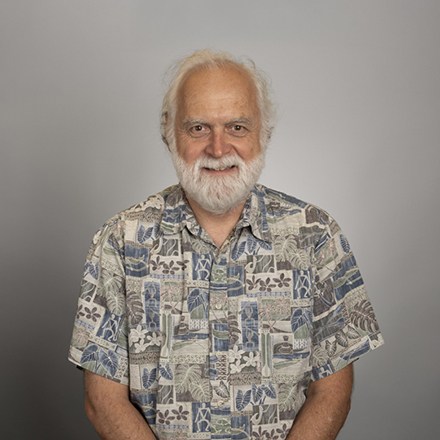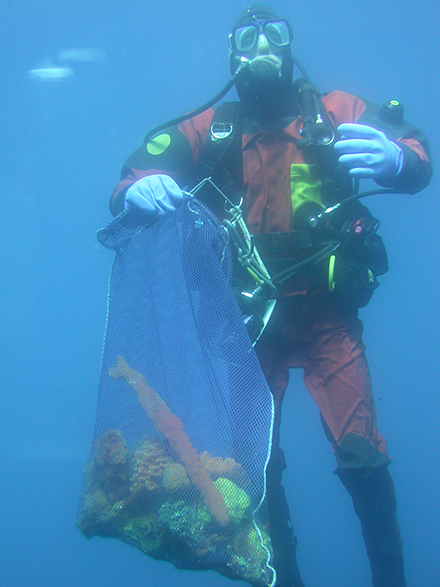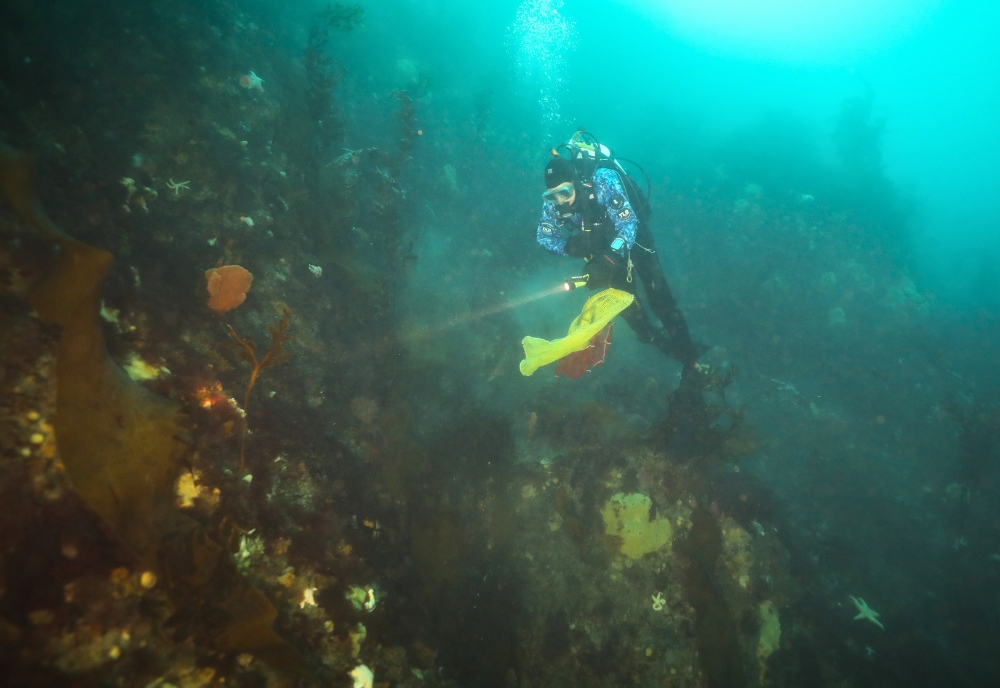USF College of Arts and Sciences professor Dr. Bill Baker has dedicated his research career to the creation of live-saving human therapeutics using marine invertebrates.

Bill Baker, PhD, professor in the Department of Chemistry. (Photo by Corey Lepak)
Invertebrates are the most diverse group of animals in the ocean, according to NOAA Fisheries, with common examples including mollusks, crustaceans, and corals.
Baker joined the Department of Chemistry in 2001 and since then his lab, Baker Chemistry, has been moving the needle in the advancement of marine biomedicines.
“I was originally fascinated by the fact that you could take leaves from a tree and find useful chemical substances—flavors like mint, cinnamon, vanilla or pigments from all over the visual spectrum, and even drugs like aspirin,” Baker explained. “As I developed this interest it was clear that trees and plants had been well studied, but marine organisms were not. Once I got scuba certified I was fully hooked on studying the chemical substances found in marine organisms and how they can be used to improve the human condition.”
Baker, who studied chemistry as an undergraduate at Cal Poly in San Luis Obispo, California, followed by a PhD from the University of Hawaii—where he says he originally developed his primary interest in marine natural products chemistry—conducted his postdoctoral research at Rice University and Standford University, spending a few years as faculty at Florida Tech before joining USF.
One particularly impactful research endeavor Baker and his team are currently working on focuses on the development of a treatment for melanoma.
“We have discovered a number of profoundly interesting substances from marine organisms,” he explained. “The one we have had the most success moving from the lab toward biomedical applications is a metabolite we found in a tunicate from Antarctica that has potent activity against melanoma.”

Team member Dan Martin heading back to the boat from a successful collecting dive near Palmer Station. (Photo courtesy of Bill Baker)
“A tunicate is a marine organism that looks a bit like a sponge though is completely unrelated. Because we can't just drive down to Antarctica to get additional samples it has taken us a long time, since 2006, to advance our understanding of this metabolite,” he said.
Baker and his lab recently completed a project with collaborators in Nevada, California and New Mexico in which we they were able to produce the melanoma inhibitor by culturing it in a bacterium.
“So now we have a limitless supply; we can start studies of the metabolite in mice and fully assess its anticancer potential,” he explained. “I'm most proud of this project because we've taken it from the sea floor of Antarctica and are now in a position to fully understand its biomedical potential.”
Baker adds that the development of the antimelanoma metabolite will be ongoing in the lab for some time, including both animal studies and further synthetic studies will be used to optimize the anticancer activity.
“We have continuing interests to discover new metabolites from marine organisms and we have recently begun a collaboration with the Smithsonian Institution to study their vast collection of preserved marine organisms from all over the world and some collected as long ago as the nineteenth century,” he added. “There is still so much marine life in our oceans that haven't been studied for their natural product content, this research will be ongoing for several more generations of chemists like myself.”
Baker said he hopes that this type of critical discovery research and investigation helps to shed light on “unknown science.”
“Every new metabolite we find in a marine organism fills a gap in our understanding not only of that metabolite, but of the producing organism and how that organism is interacting with its environment,” he said.
Baker’s enthusiasm for finding answers to the unknown is something he says has roots in the collaborative nature found at USF.
“My USF collaborations have been the source of many of my best projects,” he said. “CAS epitomizes that collaborative effort as my colleagues in integrative biology and microbiology have contributed to stimulating and productive projects.”
Learn more about Baker’s research and the Department of Chemistry. If you’re interested in supporting Dr. Baker’s research, please contact Kelly Addington, Sr. Director of Development, (813) 974-5764.
